|
As you walk on trails through the woods and along the lake or river, you frequently see trees cut down by beavers or loggers, and the stump that’s left is often sprouting new growth. This is quite common with deciduous trees and is a natural way of reforestation. Some of these shoots grow into fully mature trees. What seemed dead and over with is resurrected to new life and fruitfulness. In Isaiah 11:1-5 (MSG) we read about such a situation: “1-5 A green Shoot will sprout from Jesse’s stump, from his roots a budding Branch. The life-giving Spirit of God will hover over him, the Spirit that brings wisdom and understanding, The Spirit that gives direction and builds strength, the Spirit that instills knowledge and Fear-of-God. Fear-of-God will be all his joy and delight. He won’t judge by appearances, won’t decide on the basis of hearsay. He’ll judge the needy by what is right, render decisions on earth’s poor with justice. His words will bring everyone to awed attention. A mere breath from his lips will topple the wicked. Each morning he’ll pull on sturdy work clothes and boots, and build righteousness and faithfulness in the land.” Isaiah uses this extended metaphor to bring real hope to his people. He lived during the time of the Assyrian invasions of Israel and Judah. The ten tribes of the Northern Kingdom of Israel were destroyed by the Assyrians, and later on they even tried to destroy the Southern Kingdom of Judah. It was a very tense situation for those holed up in Jerusalem, as Isaiah recounts in the historical section of his book in chapter 37. The people were stumped about how this would all continue and whether God had given up on them. But in the prophetic sections, Isaiah has already delivered a very hopeful prospect for the royal line of the house of David, that “a virgin will be with child and will give birth to a son, and will call him Immanuel” (Is.7:14 NIV). He has also shown the Northern kingdom, that in spite of its present demise, there is light at the end of the tunnel: “In the past he humbled the land of Zebulun and the land of Naphtali, but in the future he will honor Galilee of the nations, by the Way of the Sea, beyond the Jordan-- In Is.10:32 (NIV) he uses the same metaphor of felling trees and applies it to the enemies of the people of God who will be destroyed: “See, the Lord, the Lord Almighty, will lop off the boughs with great power. The lofty trees will be felled, the tall ones will be brought low.” While there is no hope provided for the enemies of God, who are cut off, there is hope for the people of God, because the shoot from the stump of Jesse, the Messiah, Jesus Christ, will bring about a new, spirit-filled life, righteousness, faithfulness -- in other words: real hope! While our personal situation, our work and our ministry might look at times like a dead stump, because of Jesus living within us, there will always be a new shoot growing. Spiritual reforestation will take place. The kingdom of God cannot be eradicated. As Martin Luther sang: “The body they may kill, God’s truth abideth still, His kingdom is forever.”
0 Comments
Some people are not very fond of beavers, because they cut down trees (about 300 a year per beaver) and flood meadows by building their dams. Despite the damage they cause, they are really a very useful species. God created these giant rodents with a specific purpose, and scientist who have studied them marvel at their design: Beavers are very well adapted for swimming. Their large hind feet are webbed and make them into strong swimmers. The small front paws are not; instead they have sharp claws. With those they dig up mud and stones for their lodges and dams. They also use their back feet to spread a waterproofing oil on their fur. Their nostrils and ears can be closed when swimming. Beavers can see well under water because there is a thin see-through lid over their small eyes that functions like goggles. Their front teeth are very strong and sharp for cutting down trees and they never stop growing, but are kept at the right length because of their constant gnawing on hardwood trees. Beavers are such fascinating rodents that they have their own website. On www.beaversww.org you can read that “Beavers are more than intriguing animals with flat tails and lustrous fur. American Indians called the beaver the "sacred center" of the land because this species creates such rich, watery habitat for other mammals, fish, turtles, frogs, birds and ducks. We now know that beaver damming provides essential natural services for people too. Beavers prefer to dam streams in shallow valleys, where the flooded area becomes productive wetlands. These cradles of life support biodiversity that rivals tropical rain forests. Almost half of endangered and threatened species in North America rely upon wetlands. Freshwater wetlands have been rated as the world's most valuable land-based ecosystem. Beavers reliably and economically maintain wetlands that sponge up floodwaters, alleviate droughts and floods (because their dams keep water on the land longer), lesson erosion, raise the water table and act as the "earth's kidneys" to purify water. The latter occurs because several feet of silt collect upstream of older beaver dams, and toxics, such as pesticides, are broken down by microbes in the wetlands that beavers create. Thus, water downstream of dams is cleaner and requires less treatment for human use.” This reminds us of what the people of Israel experienced in Ex.15:23-25: “23 When they came to Marah, they could not drink its water because it was bitter. (That is why the place is called Marah.) 24 So the people grumbled against Moses, saying, “What are we to drink?” 25 Then Moses cried out to the Lord, and the Lord showed him a piece of wood. He threw it into the water, and the water became fit to drink.” Like a beaver, fulfilling his God-appointed task of throwing wood pieces into the water to dam up streams and purify their waters, Moses was given a similar task to make life in abundance possible for his people. Of course, it’s not just about providing a basis for an ecosystem of rich biodiversity! God is interested in detoxifying us from sin and unhealthy lifestyle choices, and in giving us life in abundance with Him. As Jesus said: “I came that they may have and enjoy life, and have it in abundance (to the full, till it overflows).” (Jn.10:10 AMP). And those who serve Him have the same goal of providing the most beneficial growth environment for those in their care. Paul emphasizes this in most of his epistles, but in particular in Rom.12:10-16 (NIV), where he exhorts us: “10 Be devoted to one another in love. Honor one another above yourselves. 11 Never be lacking in zeal, but keep your spiritual fervor, serving the Lord. 12 Be joyful in hope, patient in affliction, faithful in prayer. 13 Share with the Lord’s people who are in need. Practice hospitality. 14 Bless those who persecute you; bless and do not curse. 15 Rejoice with those who rejoice; mourn with those who mourn. 16 Live in harmony with one another.” Acting in this way will provide the most beneficial environment for spiritual growth. Let’s work as hard on this as beavers work on their environment! The granite formations of the Canadian Shield are often quite interesting. There is a rock on our property that looks a lot like a chiseled character face. It speaks to me of determination, of not being intimidated by challenges, of unflinching pursuit of a God-given mission despite strong opposition. And it reminds me of a passage in Ezekiel 3 (verses 1-11), where God says the following to the prophet: 3 He told me, “Son of man, eat what you see. Eat this book. Then go and speak to the family of Israel.” This is the prophetic commission every pastor has been given. And while the intake of God’s word is sweet as honey and nourishing to our soul, there is also the fact that many of God’s people will not listen to it and will be severely opposed to the one bringing the message. The personal attacks against the messenger are often mean, hurtful, devastating, and draining, but what’s even more of a concern for the messenger is that the people of God, won’t listen to God, reject God Himself and rebel openly against His lordship. This is more than just a difference of opinion, these people jeopardize an intimate relationship with God and even their eternal destiny. Obviously this affects those who are entrusted with the soul-care of God’s people. They wonder whether they have been too harsh, failed in the teaching of the truth, not cared enough for the individual, not offered the necessary help and support, etc. They second guess their calling, wondering whether they are really cut out for this task. They are dismayed by the lack of results, lack of success, and lack of response. They are intimidated by the backlash. They even wander away from God themselves. And many have nervous breakdowns, suffer from depression, or quit the ministry altogether. What are God’s instructions in a case like this? It’s all about listening obediently to God’s word, about eating it, ingesting the truth, being nourished by it, getting it inside of us and making it our own. Not doing that was the failure of the people of God. The prophet of God should never make the same mistake. Rather: by listening to God and doing His will, in spite of opposition even from God’s people, and in spite of not achieving a positive response, God will make our face as hard as rock, so we can withstand the fiercest attacks and continue on our mission for Him.  The belted kingfisher is a common sight along the lakes of cottage country. This colourful bird is so typically Canadian, that it was even featured on the $5 bill at one time. As the name implies, kingfishers enjoy fishing. They fly South in the winter. And they always look as if they have just pulled their tuques off their heads and have a serious case of “bad-hair-day”. The scientific name of the kingfisher is alcyon, which is its Greek equivalent. According to Greek legend, the Mediterranean relative of the kingfisher, was granted the gift of calm weather for its nesting period. The story is told that the distraught queen Alcyone jumped into the sea in grief after her husband’s loss in a shipwreck. The gods took pity, turned both husband and wife into kingfishers and stilled the winds for two weeks around the time of the winter solstice each year, a time still known as the halcyon days. Kingfisher Crossing is intended to provide such a period of calmness, peace and untroubled tranquility, away from the storms, turbulences and stiff cross winds of life. It’s a place that wants to make room for the King of kings to cross paths with His fishers of men. It’s an opportunity for worn out fishers of men to rest, to let their hair down and to be re-energized as they spend time with their King walking and talking along the lakeshore. Jesus Himself invites all of us: “Are you tired? Worn out? Burned out on religion? Come to me. Get away with me and you’ll recover your life. I’ll show you how to take a real rest. Walk with me and work with me—watch how I do it. Learn the unforced rhythms of grace. I won’t lay anything heavy or ill-fitting on you. Keep company with me and you’ll learn to live freely and lightly.” (Mt.11:28-30 MSG) At another time Jesus said to His disciples: “Come off by yourselves; let’s take a break and get a little rest.” For there was constant coming and going. They didn’t even have time to eat. So they got in the boat and went off to a remote place by themselves.” (Mk.6:31-32 MSG) This shows us that Jesus is not a slave driver, merely intent on us performing tasks and producing results. He is interested first and foremost in a personal relationship with His people, something a lot of ministry leaders tend to forget. He really cares for them! As the Good Shepherd, Jesus shepherds His under-shepherds in the ways of Psalm 23 (expressed in The Voice like this): “1 The Eternal is my shepherd, He cares for me always. 2 He provides me rest in rich, green fields beside streams of refreshing water. He soothes my fears; 3 He makes me whole again, steering me off worn, hard paths to roads where truth and righteousness echo His name.” It really is all about being made whole again by the Good Shepherd, about focusing on His name – on Himself, about allowing Him to care for us, and to provide rest and refreshment for us. Halcyon days at Kingfisher Crossing are wonderful opportunities. But no pause, no place, and no program can produce peace. Only the person of the Prince of Peace can! Enjoy the relationship with Him! Fungi are fascinating: they grow in all kinds of shapes and sizes, colours and locations, and have some very interesting characteristics and names. Giant Puffballs, Old Man of the Woods, Poison Pies, Apricot Jellies, Dead Man’s Fingers, and Jack-O-Lanterns are just some of these unique descriptors. One species is called the Corpse Finder Mushroom, and it is named this way for the obvious reason: it indicates the presence of a decaying mammal. Like many mushrooms, the Corpse Finder is a decomposer living on dead organic material. Apparently a whole cluster of these mushrooms helped find a shallow burial site of a human corpse and solve a crime. The Corpse Finder Mushroom, while very much alive itself, is an indicator of death. We have these indicators of death in the spiritual realm, as well, but often overlook them. In the Message, Eugene Peterson translates Jesus’ words of Rev.3:1-6 by pointing out these indicators of death in contemporary language: “Write this to Sardis, to the Angel of the church. The One holding the Seven Spirits of God in one hand, a firm grip on the Seven Stars with the other, speaks: The problem of the church in Sardis is often our problem, as well: busywork, having a reputation for vigor and zest, but not completing God’s work. We run a sheer endless array of programmes at our churches, create mountains of paperwork, work on countless committees, keep our volunteers busy every night of the week, attend Christian concerts and conferences, organize fundraisers, community events, bus trips, short term missions, etc., etc. Could it be that much of what we do is just busywork, not the actual work that God has called us to? Are we more concerned about an outward appearance of having a vigorous and zestful ministry, than about taking the time to listen to Jesus and finding out what He has in mind? Are we more like the distracted Martha than the devoted Mary? Or worse yet: are we like the Scribes and Pharisees whom Jesus criticised severely in Mt.23: “27 “Woe to you, teachers of the law and Pharisees, you hypocrites! You are like whitewashed tombs, which look beautiful on the outside but on the inside are full of the bones of the dead and everything unclean. 28 In the same way, on the outside you appear to people as righteous but on the inside you are full of hypocrisy and wickedness.” Jesus, like the Corpse Finder Mushroom, indicated the presence of death, decay and decomposition right at the top leadership levels of the religious establishment. What’s He pointing out in our lives?
Rulers and rattlers have a pretty bad reputation. And that’s not anything new. David questions whether they are really interested in what is right, and associates political rhetoric with rattlesnake poison in Ps.58: “Is this any way to run a country? Is there an honest politician in the house? Those in charge often abuse their position of power. They refuse to listen and frequently put a political spin on reality that will suit their agenda. And that’s not just the case in national, provincial and local politics, it’s unfortunately often also true in religious communities. Ezekiel talked about false shepherds who only pursue their own agendas, exploiting the flock, and Jesus predicted persecution of his followers by the religious establishment: “You must be on your guard. You will be handed over to the local councils and flogged in the synagogues.” (NIV Mk.13:9). John writes about a certain Diotrephes in his third epistle who engaged in these kinds of politics (MSG 3.Jn.9-10): “Earlier I wrote something along this line to the church, but Diotrephes, who loves being in charge, denigrates my counsel. If I come, you can be sure I’ll hold him to account for spreading vicious rumors about us. As if that weren’t bad enough, he not only refuses hospitality to traveling Christians but tries to stop others from welcoming them. Worse yet, instead of inviting them in he throws them out.” Unfortunately, church history records many of these abuses of power, where religious leadership does not consist of virtuous servants, but of venomous serpents: “poison, lethal rattlesnake poison, drips from their forked tongues.” Instead of furthering a life-giving community, they poison the atmosphere. In 2.Peter 2, the apostle describes such corrupt leadership in detail and in the following chapter, he encourages the believers to recall the words of the prophets and Jesus Himself that all of this evil will be judged and come to an end. And then we will experience, what he says in v.13 (VOICE): “What will happen next, and what we hope for, is what God promised: a new heaven and a new earth where justice reigns.” This is going to be the time, when even rattlesnakes can no longer do any damage, as Isaiah prophesied: “The nursing child will crawl over rattlesnake dens, the toddler stick his hand down the hole of a serpent. Neither animal nor human will hurt or kill on my holy mountain. The whole earth will be brimming with knowing God-Alive, a living knowledge of God ocean-deep, ocean-wide.” (MSG Is.11:8&9) But we are not there yet, so what can we do in the meantime? Since we cannot necessarily control other people’s action, what’s the best thing we can do? The same question is being asked by Peter (in NIV 2.Pet.3:11-14): “what kind of people ought you to be? You ought to live holy and godly lives as you look forward to the day of God and speed its coming… So then, dear friends, since Our focus needs to be on Jesus! There is no benefit in allowing our thoughts to anxiously revolve around what other people are saying. Much of that is rattlesnake poison. We need to focus on communing and communicating with Jesus. As Paul says in Phil.4 NIV: “4 Rejoice in the Lord always. I will say it again: Rejoice! 5 Let your gentleness be evident to all. The Lord is near. 6 Do not be anxious about anything, but in every situation, by prayer and petition, with thanksgiving, present your requests to God. 7 And the peace of God, which transcends all understanding, will guard your hearts and your minds in Christ Jesus.” That’s the antidote to rattlesnake poison! Just being by the lakeside has a therapeutic effect on many people in our fast-paced society. There are not too many of us who prefer the office over spending time at the lake. Especially on a warm day, we really enjoy hanging out close to the water, sticking out toes into it, walking along a sandy beach in bare feet, collecting shells, watching the seagulls dive, casting a lure, or going for a boat ride. It’s one of the best escapes for people that are harassed. This wasn’t any different for Jesus. He saw the lake area of Galilee as the best place to establish His fledgling ministry. Of course, Jesus was born in Bethlehem, which is in the South of Israel, in the tribal territory of Judah. From there His parents were forced to flee to Egypt, where Jesus spent His infancy. Thereafter the family moved back North to Nazareth, the hometown of Mary and Joseph. This is where Jesus grew up and learned His trade of carpentry. As an adult He then went down to Judea where He connected with John the Baptist, where He was baptized and where He was tempted in the wilderness. Things got very tense for John shortly after this and so his cousin Jesus decided to go to a more remote and natural setting. We read in Mt.4:12 (MSG): “When Jesus got word that John had been arrested, he returned to Galilee. He moved from his hometown, Nazareth, to the lakeside village Capernaum, nestled at the base of the Zebulun and Naphtali hills.” In this idyllic setting, away from the religious, political and economic hubs of the country, Jesus began to recruit His followers and train them in hands on ministry, right by the lake. Mark points out Jesus’ close connection to the lakeside locality in the first few chapters of his gospel (NIV): Mark 1:16 Jesus very deliberately picked the lakeside area to launch His ministry, in order to fulfill Biblical prophecy. We read in Matthew 4:14-16 (TLB): “This fulfilled Isaiah’s prophecy: “The land of Zebulun and the land of Naphtali, beside the lake, and the countryside beyond the Jordan River, and Upper Galilee where so many foreigners live—there the people who sat in darkness have seen a great Light; they sat in the land of death, and the Light broke through upon them.” While our little lake here at Kingfisher Crossing is not the Sea of Galilee, it is our prayer, that people who have experienced extreme darkness in their lives will have a very personal encounter with Jesus Christ, the Light of the world. O soul, are you weary and troubled? No light in the darkness you see? There's light for a look at the Saviour, And life more abundant and free! Turn your eyes upon Jesus, Look full in His wonderful face; And the things of earth will grow strangely dim In the light of His glory and grace. Unlike other birds, vultures have a fine sense of smell, especially for decomposing meat. As they fly overhead, seemingly effortlessly by using thermal updrafts, they cannot only see dead animals, but smell them even from quite a distance. The scent of a free meal is enough to bring a whole bevy of these beastly birds out for an orgy, tearing (Latin “vulturus” = tearing) into a rotting cadaver. The turkey vulture, which is common in Ontario, has other less than appetizing habits: Its primary form of defense is regurgitating semi-digested meat, a stinging, acidic and foul-smelling substance which deters most creatures intent on raiding a vulture nest. Because of the vultures contact with death and decay it is considered an unclean animal in the Old Testament (Lev.11:13). Jesus compares vultures, as indicators of death, with false messiahs and lying preachers, a problem that will intensify in the last days. Eugene Peterson, in the Message translation of Mt.24:23-28, interprets the passage this way: “If anyone tries to flag you down, calling out, ‘Here’s the Messiah!’ or points, ‘There he is!’ don’t fall for it. Fake Messiahs and lying preachers are going to pop up everywhere. Their impressive credentials and dazzling performances will pull the wool over the eyes of even those who ought to know better. But I’ve given you fair warning. So if they say, ‘Run to the country and see him arrive!’ or, ‘Quick, get downtown, see him come!’ don’t give them the time of day. The Arrival of the Son of Man isn’t something you go to see. He comes like swift lightning to you! Whenever you see crowds gathering, think of carrion vultures circling, moving in, hovering over a rotting carcass. You can be quite sure that it’s not the living Son of Man pulling in those crowds.” All of us desire spiritual food. The writer of Ecclesiastes (3:11) makes it clear that God has placed a sense of eternity in our inner being. Unfortunately many people look for spiritual nutrition in all the wrong places. They see the vultures circling and go to the places of the feeding frenzy, only to find rotten meat. Even Christian leaders get drawn into this hype: they look for spiritual food, but go to places, conferences and organizations that only offer dead methodology, techniques, procedures, systems and marketing gimmicks and are void of real life in Jesus. Paul warns Timothy of these vultures in 2.Tim.3:1-5: “But realize this, that in the last days difficult times will come. For men will be lovers of self, lovers of money, boastful, arrogant, … holding to a form of godliness, although they have denied its power; Avoid such men as these.” The soaring, effortless, circling flight of a vulture advertises an easy life and an easy meal. But it’s rotten food. Stay away from this disgusting food and those ugly vultures! Only Jesus Himself is the real nourishing food (Jn.6:48-63): “I am the bread of life. Your fathers ate the manna in the wilderness, and they died. This is the bread which comes down out of heaven, so that one may eat of it and not die…. It is the Spirit who gives life; the flesh profits nothing; the words that I have spoken to you are spirit and are life.” Amen to that! Painted turtles are the most widespread native turtles of North America. And they are another fascinating creation by God! For the winter they bury themselves, usually on the bottom of a pond, lake or river. When hibernating underwater, these turtles prefer shallow depths of no more than 2 m. Within the mud, they may dig down an additional 1 m. In this state, painted turtles do not breathe, although if surroundings allow, they may get some oxygen through their skin. The species is one of the best-studied vertebrates able to survive long periods without oxygen. Adaptations of their blood chemistry, brain, heart, and particularly their shells allow them to survive extreme lactic acid buildup while oxygen-deprived. The shell of painted turtles is in many ways their hiding place from predators and their shield from dangers of all kinds. It’s an instant bunker! What an ideal set-up! We’ve got a similar set-up in our relationship with God. The psalmist words it this way in Ps.119:114 (The Voice): “You are my hiding place and my shield of protection; I hope in Your word.” God Himself is that kind of protection for us. He keeps us alive when predators of all sorts try to get at us. He balances our internal lives. He shields us from damaging influences, and is our place of refuge and rest. He is always around us, and we can easily retreat into Him. This is what the psalmist in Ps.119, the longest chapter in the Bible, is emphasizing again and again: we can rely on God and His word. He is trustworthy. He keeps His promises and stands by His every word. That’s why we need to bask in His word and presence every day. That’s what turtles do, too. Painted turtles start their day at sunrise, emerging from the water to bask for several hours. Warmed for activity, they return to the water to forage. After becoming chilled, turtles re-emerge for one to two more cycles of basking and feeding. Turtles need that kind of basking in the sun on a regular basis, just like we need to bask in the Son of God’s presence, engage with Him and His word, and gain our energy for every day. It’s a good thing to do this early in the morning as the same Psalm 119 states in verse 147: “I wake before the dawn and call for help; I hope in Your words.” And it’s a good thing to reconnect throughout the day as it says in v.97: “Oh, how I love Your law! I fix my mind on it all day long.” Re-emerging for more cycles of basking in God’s light and feeding on His word is what we need regularly. So take some time right now to bask in God’s light. White tailed deer long for water, especially during the hot, dry summer months or after they have escaped such predators as wolves, coyotes, or bears that chase them. People involved in front line ministry, such as missionaries, pastors and worship leaders often feel chased, as well. And they are not immune to an extended drought either. They long for their spiritual thirst to be quenched. Psalms 42 and 43 (which in many Hebrew manuscripts constitute one psalm) are the words of a worship leader who feels distant from God, spiritually parched, pursued by predators, and wants to reconnect with the fountain of life once again. His longing lament speaks for itself. Read it slowly and let the words soak into your soul, too: Psalm 42 The Message (MSG) This last verse is the chorus of these two psalms that has now been repeated several times (in Ps.42:5,11 & 43:5). It’s the best way the psalmist knows how to encourage his own soul by exhorting himself three times to fix his eyes on God. In a sense that’s what the writer of Hebrews encourages his readers to do, as well, in Heb.12:1-3 (MSG): “Keep your eyes on Jesus, who both began and finished this race we’re in. Study how he did it. Because he never lost sight of where he was headed—that exhilarating finish in and with God—he could put up with anything along the way: Cross, shame, whatever. And now he’s there, in the place of honor, right alongside God. When you find yourselves flagging in your faith, go over that story again, item by item, that long litany of hostility he plowed through. That will shoot adrenaline into your souls!” – So go over that story again!
|
AuthorsWe are a pastoral couple named Stefan & Heidi König. We have many years of experience in various ministries, and are thankful that God has given us this property to use as a way to bless others who need a place to relax and reconnect with Him. Kingfisher Spiritual Direction
Direct your heart to Jesus and restore your soul. If you need to hear from God, to grow deeper with Him, consider spiritual direction. An ancient discipline of soul care, Heidi is trained to prayerfully lead you in this practice. Archives
January 2018
|
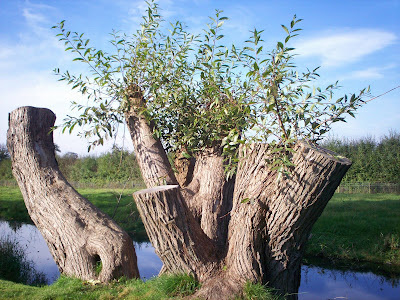




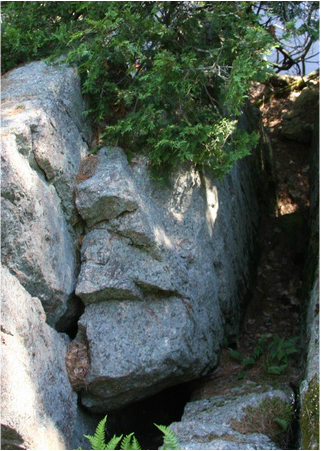


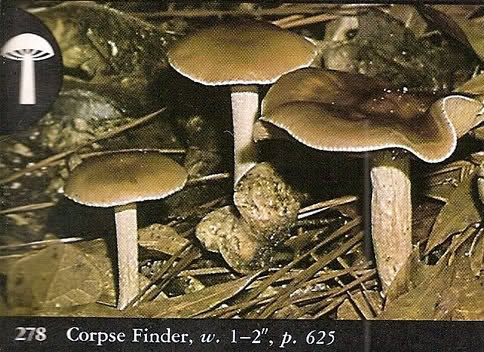


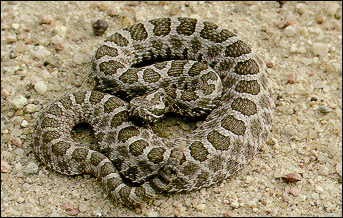

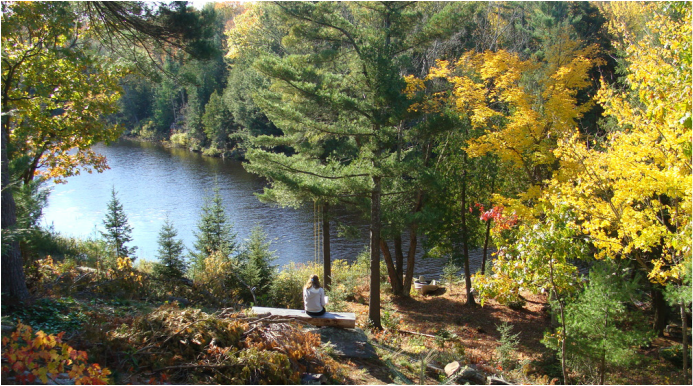







 RSS Feed
RSS Feed
